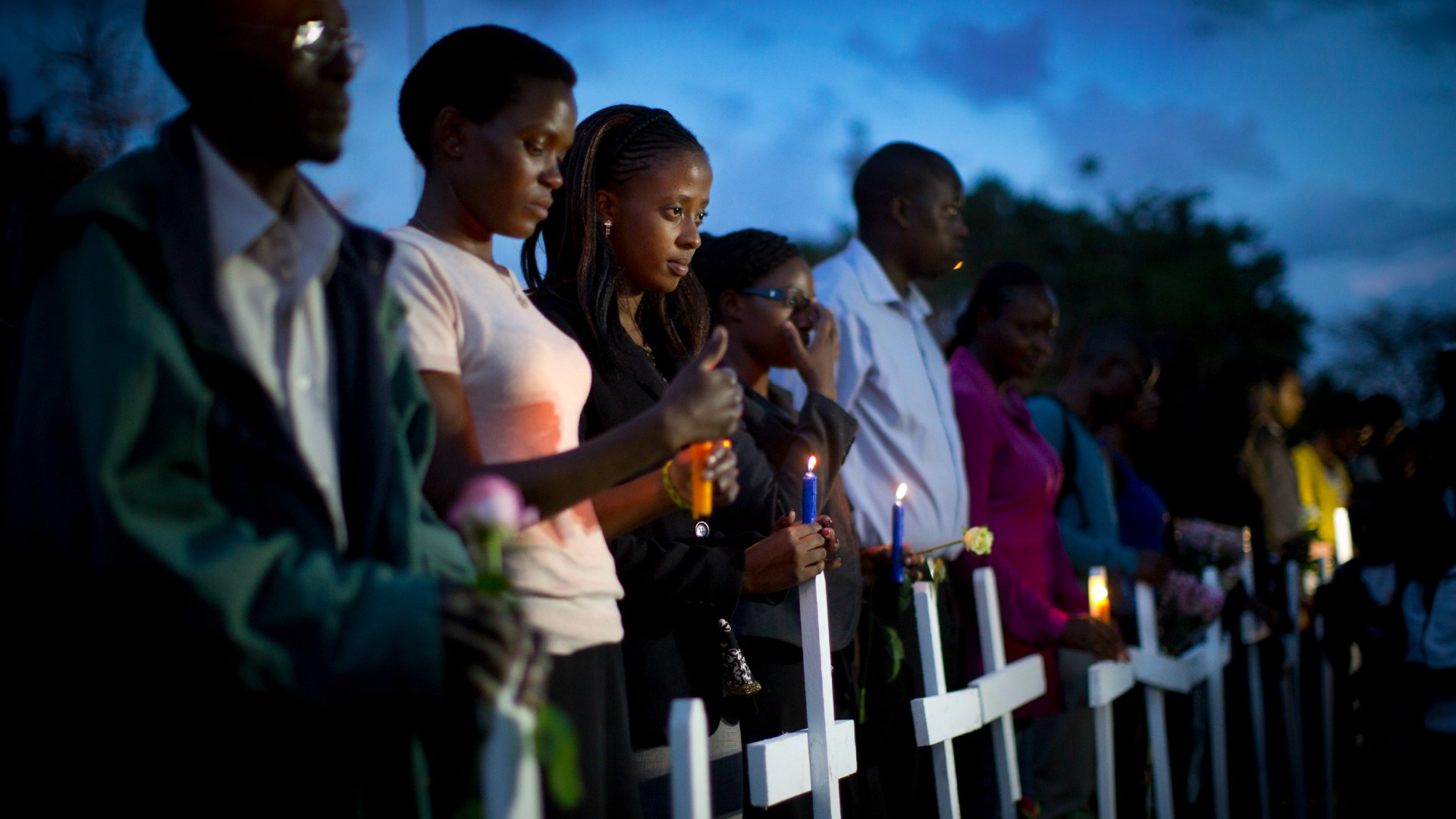On this past Maundy Thursday, students at a university in Garissa, Kenya gathered to pray before class. Others crammed for exams or finished dressing for the day or scarfed down breakfast. While they went about the spiritual and the mundane, gunman murdered two guards at the entrance to the school then headed for the chapel.
After separating Muslim students, the gunman forced the Christians to the ground and shot them in the back of their heads. During the attack, one Christian student hid in her closet and stayed there for two days. She ate hand lotion to stay hydrated in this hot, dusty rural region of northern Kenya. Another student was later pulled, alive, from beneath a pile of her dead peers, the image gruesomely reminiscent of survivor stories from Rwanda.
148 dead.
The attackers were members of al-Shabaab, a Somalia-based militant group. In Garissa, the majority of their victims were Kenyan, but inside their home country, Somalis themselves have suffered violence, brutality, and death at the hands of al-Shabaab.
I felt sick and angry. I felt the fringes of a grief and the cold, now-familiar prickle of fear. I don’t live in Kenya or Somalia, but I used to. My teenage twins currently attend a boarding school in Kenya, while I live in Djibouti, a small country bordering Somalia, currently swelling with refugees from the violence in Yemen. I am from Minneapolis, home to one of the largest populations of diaspora Somalis in the world.
Anything related to Kenya or Somalia hits close to home. Just a week earlier my teens’ school experienced an emergency security lockdown. It was a false alarm, but it might not always be a false alarm. There it is again, fear.
After the Westgate shopping mall attack in Kenya in 2013, I can barely go to the grocery store without wondering if this is when I die, while buying apples and Corn Flakes. After a suicide bomb in downtown Djibouti in last year, I can’t eat at the gelato shop without the flashing question, Is this where I die?, with a pink plastic spoon of coffee-flavored gelato in my mouth.
Jesus’ command, “Do not be afraid,” is one of the hardest for me to obey. I find great comfort in Psalm 56:3, “When I am afraid, I will put my trust in you.” David didn’t say, “I put my trust in you and never felt afraid again.” He didn’t say, “I never feel afraid because my trust in you is so perfect.” He didn’t deny his fear or ignore it. He faced it, called it fear, and turned back to trust in God.
I fear a lot of things. Malaria. Loneliness. Physical pain. I can’t sleep the nights my kids are flying between Djibouti and Kenya for school. Easter Sunday after the Garissa attacks I noticed that our church hadn’t placed any armed guards outside like they often do on holidays. During the service, my body was tense and my eyes constantly flicked to the doorway.
If forced to choose between “brave” and “coward” to describe myself, I have to say coward. I am the woman cowering behind Jesus, clinging to the edges of his robes, trembling. I’m the one saying, “I want to be with you. I want to go with you. But are you sure you want to go there? You really want to do that?”
Still, I love this brave Jesus that I’m following. I love the sharp rebuke to the leaders who wanted to stone an adulterous woman, the serenity that slept through the storm, the face set resolutely toward Jerusalem, the desperate and submissive plea in Gethsemane. I love the hope of resurrection.
I would rather go with this Jesus into my fear than be left behind, safe and on my own. And right there, I see all the motivation I need to cling to him: Safe is an illusion, and my lust for it can do nothing to guarantee it. When the disease comes, when the plane crashes, when bombs burst, when loved ones grow old, right there in the middle of brokenness, fear, and the utter destruction of any illusion of safety, I need Jesus. This need doesn’t cancel out my fears. It teaches me trust. And the way God teaches me trust comes in unexpected ways.
Days after the Garissa attack, the cashier at the grocery story asked about my kids in school in Kenya, worried after watching the news. She is a Djiboutian Muslim with family from Somalia. Her thoughtfulness almost made me cry. My kids were safe, they weren’t anywhere near Garissa, but the fear was real, the what-ifs hovering.
When I concentrate on what I’m afraid of, it inhibits my relationship and impedes worship. But her concern at that moment counteracted the weight of my fear. Her words were a gift from God, helping me take my eyes off my fear and instead focus on this friendship. It may not take away my fear, but it helps me to pray more fervently with David, “When I am afraid, I will put my trust in you.”
Rachel Pieh Jone, a native Minnesotan, lives with her husband and three children in Djibouti. Read more at her blog Djibouti Jones or follow Rachel on Facebook and Twitter.









